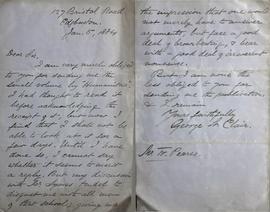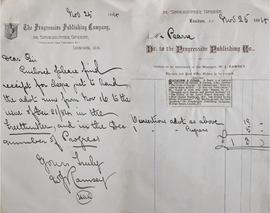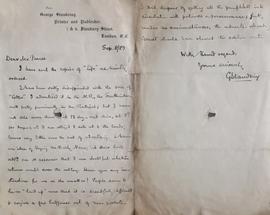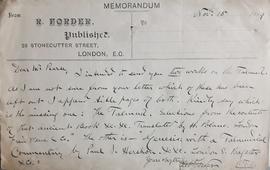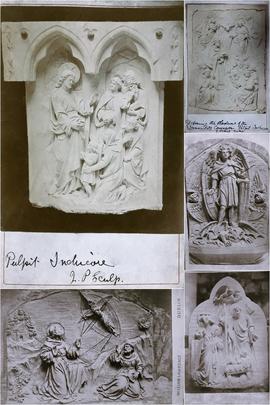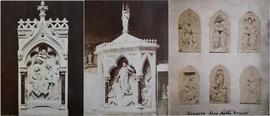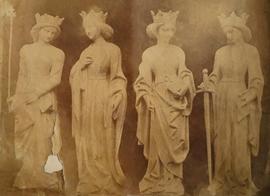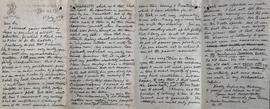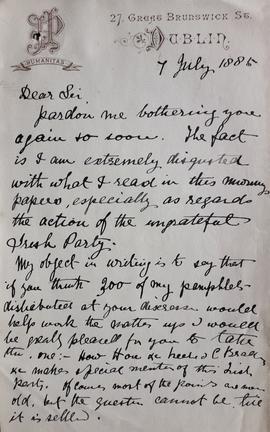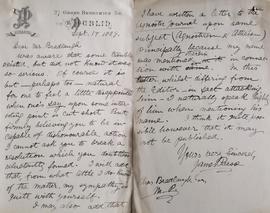Código de referencia
Título
Fecha(s)
- 1876-1900 (Creación)
Nivel de descripción
Volumen y soporte
14 files and 26 items; Bound volume; Manuscript; Typescript; Newspaper clipping; Photographic print
Nombre del productor
Institución archivística
Historia archivística
Origen del ingreso o transferencia
Alcance y contenido
James Pearse was born in London on 8 December 1839. A gifted sculptor, he came to Ireland in about 1860. In the early 1870s he formed a partnership with Patrick J. O’Neill specialising in monumental works which had its workshop on Great Brunswick Street (now Pearse Street) in Dublin. This partnership was dissolved in about 1878. Between 1880 and 1891 Pearse worked in partnership with his foreman Edward Sharp (who was also from England). Following the dissolution of this partnership, Pearse ran his own monumental sculpture business in the Irish capital. Pearse married twice. By his second wife, Margaret Brady, whom he married in October 1877, he had two daughters and two sons. Pearse was largely self-educated. As a bibliophile, he was an avid reader and embraced rationalist thinking and scientific method. Although Pearse was nominally a Catholic (he converted to the religion in about 1869), evidence suggests that he was an atheist. He was an avid supporter of the radical English politician and atheist propagandist Charles Bradlaugh (1833-1891) and wrote several tracts for various secularist publications under the pseudonym ‘Humanitas’. Influenced by the strongly nationalist opinions of his wife, Pearse was also a supporter of Irish Home Rule. He died suddenly on 5 September 1900 in Birmingham while on a visit to relations. After his death, the family business was carried on for a few years under the name James Pearse & Sons by his younger son, the sculptor William Pearse (1881-1916), with some help from his elder son, Patrick Pearse (1879-1916). Both were executed for their part in the 1916 Rising. The collection includes correspondence (including letters to James Pearse from Charles Bradlaugh, Annie Besant and other prominent secularist and atheist activists) and financial and photographic records relating to his monumental sculpture business.
Valorización, destrucción y programación
Acumulaciones
Sistema de arreglo
Condiciones de acceso
Condiciones
Idioma del material
Escritura del material
Notas sobre las lenguas y escrituras
Características físicas y requisitos técnicos
Instrumentos de descripción
Existencia y localización de originales
Existencia y localización de copias
Unidades de descripción relacionadas
Notas
For detailed biographical information on James Pearse (1839-1900) see https://www.dib.ie/biography/pearse-james-a9971

